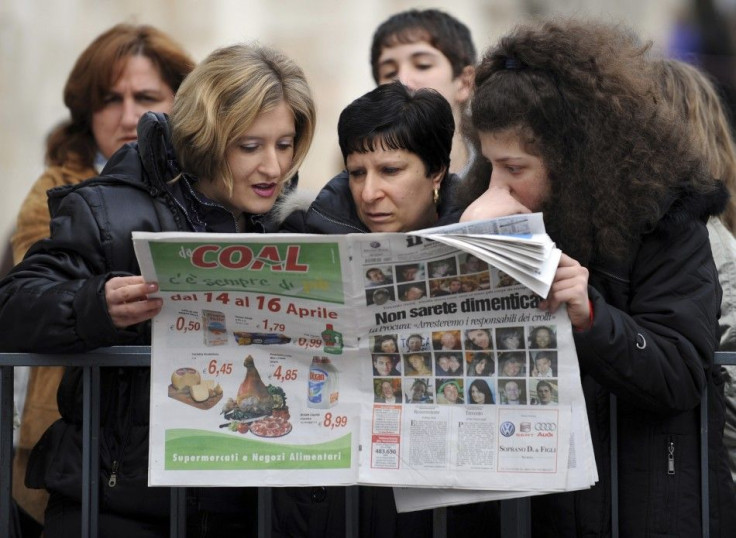Italy: Scientists Jailed For Failing To Predict 2009 L'Aquila Earthquake

Six seismologists and one government official were found guilty of multiple counts of manslaughter and sentenced to six years imprisonment on Monday for failing to predict an earthquake that killed hundreds of people in 2009.
The scientists first convened more than three years ago in an attempt to assess the risk of a seismic event in L’Aquila, Italy, a city surrounded by medieval walls in the shadow of the Apennine Mountains.
A series of quakes had occurred there beginning in late 2008, prompting town officials to call on the scientists to determine whether the townspeople should be concerned about a major seismic event, according to the journal Nature.
The seismic experts emerged from their committee deliberations and announced on May 31, 2009, that it was not possible to say for sure whether a major seismic event would occur.
One of the worst European earthquakes in recent memory struck L’Aquila six days later. As poorly fortified medieval buildings crumbled to the ground, 309 people lost their lives.
Following the tragedy, a team of Italian prosecutors charged the scientists with negligence amounting to manslaughter, on behalf of several L’Aquila residents who had lost loved ones. Prosecutor Fabio Picuti explained that some of the scientists had told locals that an earthquake was not likely, essentially encouraging them not to evacuate.
But scientists the world over ridiculed the charges, arguing that it is not possible to predict earthquakes with perfect accuracy.
The trial began in September of last year. On Monday, regional court Judge Marco Billi took four hours to pore over the evidence and make his decision. In the end, the seven experts were found guilty of providing “inexact, incomplete and contradictory” information to the public, according to the BBC.
One of the scientists, Enzo Boschi, said he was “desperate” upon hearing the verdict.
“I thought I would have been acquitted,” he said. “I still don’t understand what I was convicted of.”
The scientists’ lawyers have said they will appeal the ruling.
© Copyright IBTimes 2025. All rights reserved.






















